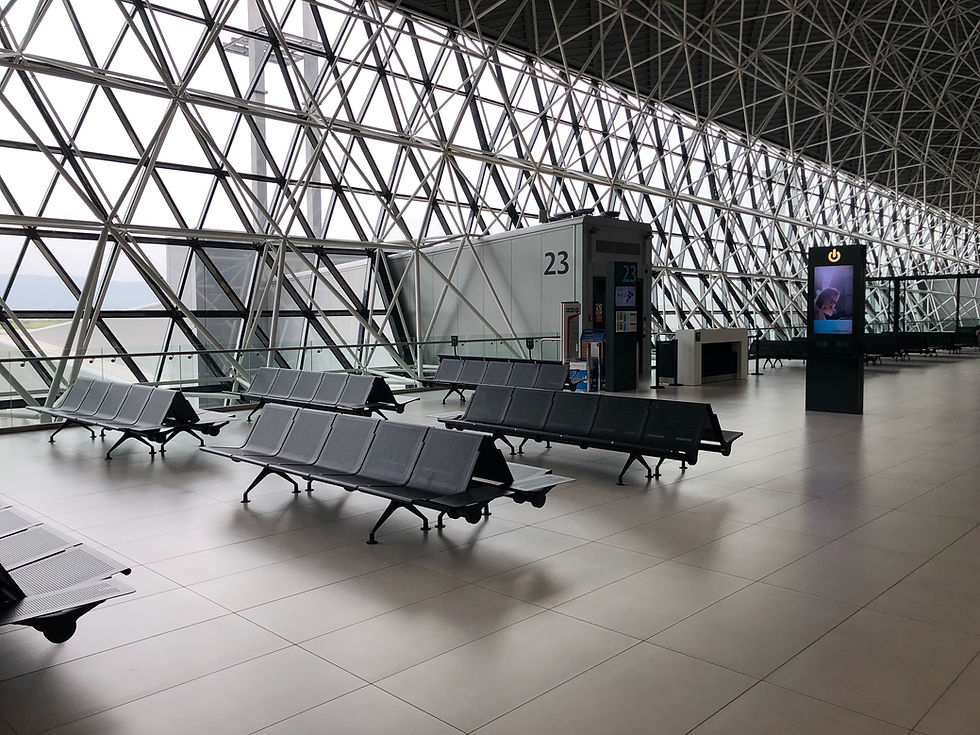A positive sign of the scale that crisis management is now embedded in the modern corporate landscape is the extent to which the “recovery” phase is now already being considered, even as infection rates worsen globally and the COVID-19 crisis deepens.
Only a temporary disruption?
Many organisations who have fallen back on their planning and are responding to the various challenges are already devoting valuable bandwidth to charting a full return to business, assessing that disruption from the Pandemic is likely to be temporary. Economic analysis by the major providers is supportive of this view, though obviously notes potentially gale-force headwinds to growth and, likely, a deep if hopefully brief worldwide recession.
...Or a paradigm shift?
It is striking how many recovery plans are based on the assumption that the company will re-enter the same business and operating context that existed pre-COVID-19.
There is understandable focus given to resuming operations, revenue streams, relationships and markets but less obvious analysis as to whether any of these elements will be permanently changed, or even still exist, in a post-COVID system. Is "recovery" even the correct term in this context, should firms be looking to "adapt"?
An example; direction of travel
Consider travel and tourism; hotel companies and airlines have been amongst the biggest immediate casualties of COVID-19's impact, demand has dropped, hotels are shuttered, planes grounded and share-prices tanking. In both industries, major players are hunkering down and assessing the velocity of recovery. But they face an entirely unfamiliar market. Business travel, taken for granted and the key driver of growth for both, is looking precarious.
Gathering dust
The most obvious impact of COVID-19 has been to ground frequent travellers, for suitcases to be stored away and airmile and hotel loyalty cards to gather dust. If this was a major disruption as seen before with 9/11 or even SARs, demand would be expected to bounce back, and strongly. However the global travel industry landscape is now changing by the day and old certainties are falling as infections grow.

The virtual business traveller
Travel risk concerns have increased as companies have seen travellers succumb to infection, become stranded or face unproductive quarantine period from travel. Firms that thrive on face to face meetings are discovering facetime to facetime meetings are just as effective. CFOs looking to trim costs in their own recovery periods are sizing up what essential business travel will mean in a post-COVID world. The bar for authorisation of previously standard long-haul travel looks likely to become higher. Conferences are going ahead but with dial in, remote attendance and even VR technology. Environmental impact of mass business (and leisure) travel is graphically illustrated as pollution drops and scrutiny will likely grow still further on corporate green policies and environmental impact.
A new normal?
So what will the new normal be for global travel in a post COVID world and can the industries associated with it fix an assessment that will allow them to adapt and thrive?
The sheer speed and impact of COVID-19 on the global business and economic system adds a powerful disruptor to any previously understood recovery phase. While there have previously been seismic crises, even public health events as serious as COVID-19, they have not taken place in such an interconnected and interdependent world. Few, aside from major conflicts, have ever challenged the fundamental way that business is delivered, that people operate on a micro and macro level.
There is unlikely to be any business sector that is left untouched by COVID or its secondary or tertiary impacts.
Challenging assumptions
Recovery plans can be complex enough without having to respond to a volatile, unpredictable, complex and ambiguously changing operating environment where precedent offers little valuable insight.
Key dependencies may be challenged (or collapse), basic assumptions about established behaviours or ways of working, strong revenue streams, solid supply chains or near-guaranteed markets will need to be tested, rigorously. Strong competitors may fall away, new disruptive entities may emerge and gain rapid influence and drive major change in a fluid environment.
Recovery strategies and general organisational mindset may need serious adjustments. Key to all of this is flexible thinking and insightful, reliable information.
There will be opportunities for organisations that can pre-empt and adapt fast to the new-normal that a post-COVID world will present.
Staying ahead in the butterfly race
Ensuring that your sources are reliable, responsive and objective, with validated access to the information they present is critical. Devising clear indicators to help track the impacts of the crisis on your current dependencies and assumptions will help you target your recovery to land effectively, and even stand you at an advantage as others struggle to keep pace.


Comments